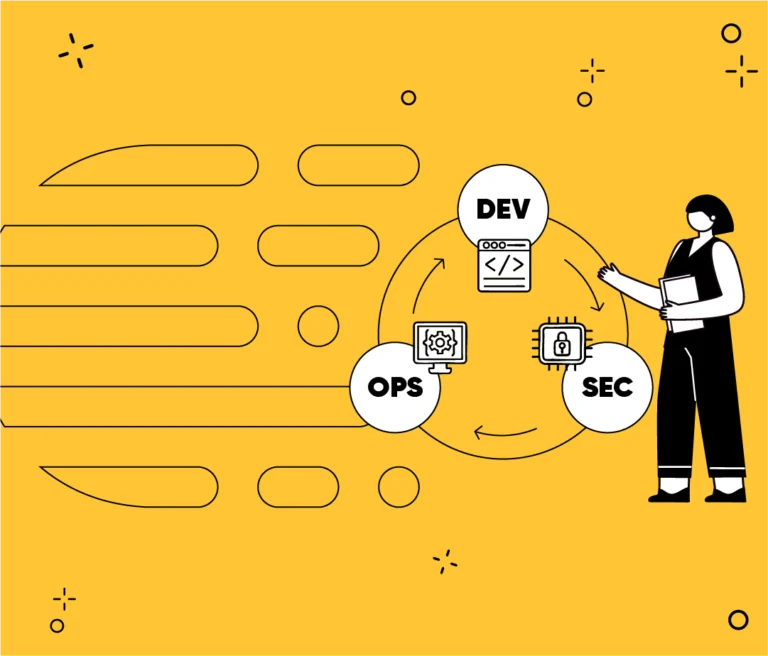The debate between neobanks vs traditional banks has intensified in the context of financial innovation and digital transformation. Both models compete to capture the attention of an increasingly demanding and digital-savvy market. Neobanks, being fully digital, challenge traditional banking shaped by physical branches and slow administrative processes. This conventional model is losing ground to the efficiency, agility, and simplicity that neobanks deliver from day one.
With a mobile-first model, neobanks are building a user-centric experience that enables agile and secure transactions, balance inquiries, and financial management from a mobile device.
In this transformation process, software for neobanks plays a key role, providing the necessary infrastructure to deliver faster, more secure, and personalized services than traditional banking. Digital platforms for neobanks not only reduce operating costs, but also incorporate artificial intelligence, big data, and blockchain tools to enhance the customer experience and optimize processes such as risk management and product customization. As neobanks continue to challenge traditional banking structures, they are shaping the future of financial services by offering solutions that are more accessible, transparent, and tailored to the needs of modern consumers.
Neobanks have gained a prominent position thanks to their all-digital approach and the use of advanced technologies. Their main advantages are:
- Accessibility and convenience: Neobanks allow banking transactions to be carried out anytime and anywhere, eliminating the need to visit a physical branch. This feature is particularly attractive to users seeking convenience and flexibility.
- Low operating costs: By operating without physical branches, neobanks have significantly lower costs than traditional banks. This translates into more competitive fees and more accessible financial products, such as no-fee accounts and international transfers with no hidden fees.
- Continuous innovation: Neobanks are constantly evolving, offering services such as automated savings, integration with personal finance applications, and new ways to manage money. They are also at the forefront of adopting blockchain, big data and artificial intelligence to improve the user experience.
And while neobanks offer numerous benefits, they also face certain challenges that they must overcome:
- Lack of physical presence: For some users, the lack of physical branches can lead to distrust, as they prefer to deal with complex issues directly with an advisor. This can be a barrier, especially for those accustomed to traditional banking.
- Regulatory challenges: In many countries, neobanks still need to adapt to local rules and regulations. Uncertainty around legislation can raise concerns among users, especially regarding the security of their data and funds.
- Distrust: Despite their innovations, some users still feel insecure about using neobanks because they lack the solid history of traditional banks, which have built their reputations over decades.
What are the best neobanks?
As the neobank industry grows, several have managed to stand out for their innovation and customer focus. Some of the best neobanks include:
- N26: Based in Europe, N26 has distinguished itself by offering a fee-free, all-digital banking experience with an intuitive interface and a variety of innovative financial services.
- Revolut: Revolut has expanded its reach globally, offering not only banking services but also the ability to manage cryptocurrencies, make international transfers at no additional cost, and access investment products.
- Chime: This U.S. neobank has distinguished itself by focusing on simplicity and eliminating traditional banking fees. Its all-digital experience appeals to a large base of young customers.
Software for neobanks: the heart of transformation

The software behind neobanks is critical to ensuring that the user experience is seamless and efficient. The platforms used by neobanks must be scalable, secure, and capable of handling high volumes of transactions and data, especially in a fast-growing environment. Neobanks need to invest in robust technology infrastructure that allows them to process large amounts of information and conduct transactions securely and without interruption. Additionally, they must be able to adapt quickly to new market demands, making the use of emerging technologies such as cloud, big data, and artificial intelligence essential.
The transition from traditional banking to mobile-first: a fundamental shift
Neobanks have been able to take advantage of the transition to a mobile-first model. Traditional banking has been overwhelmed by the speed at which consumer expectations have changed. Users no longer want to wait in long lines or deal with complex procedures; they want a quick and easy experience, all from the comfort of their mobile devices.
The neobanks offer fully digital services that enable transactions, balance inquiries, and account management from anywhere, at any time. This has become a competitive advantage over traditional banking, which still relies on physical branches for many of its services.
Suscribe to our newsletter!
Neobanks serve an unbanked sector
One of the greatest advantages of neobanks is their ability to bring the unbanked and underbanked into the financial system. This is particularly important in developing countries or in areas where traditional banking is inaccessible due to high fees or lack of infrastructure.
By offering products without excessive fees and without the need to comply with complex requirements, neobanks enable millions of people to access basic banking services that were previously out of reach, contributing to the democratization of banking.
How can you contribute to the development of neobanks?

Collaboration with software providers specialized in neobanking solutions is key to meeting the challenges of the sector. The creation of customized and scalable technology platforms is essential for neobanks to handle large volumes of customers and transactions while maintaining high standards of security and privacy.
Companies that provide cloud computing services and develop adaptable IT infrastructures are key strategic partners for neobanks on their path to innovation and sustainable growth.
The importance of hiring a development agency to create a fintech product
One of the key factors for neobanks to compete with traditional banks is the ability to offer innovative financial products tailored to users’ expectations. This digital innovation depends not only on a good idea or a potential market but also on the quality of the software that supports these solutions.
When it comes to launching or improving a neobank, it is often more efficient and effective to turn to a development agency specialized in fintech products. Development agencies have the experience and skills necessary to create robust, scalable, and secure platforms, which are essential for handling large transaction volumes and ensuring a seamless user experience. Unlike traditional banks, which typically continue to use legacy and less flexible systems, neobanks require an agile and modern technology infrastructure that can quickly evolve with market demands.
Personalization: one of the software’s great advantages
In the battle between neobanks vs. traditional banks, the right technology infrastructure makes all the difference. Specialized development agencies help neobanks implement solutions that allow them to outperform traditional banks in terms of personalization and innovation. For example, artificial intelligence solutions can be integrated to offer personalized products or big data can be used to improve decision-making and the user experience. These technological innovations allow neobanks to offer services that are more efficient and adapted to current needs, making them more attractive than traditional banks, which have historically been slower to respond to change.
Read more → Software support and maintenance: keys to product success
In addition, by partnering with a development agency, neobanks can access scalable platforms that allow for rapid expansion without the need for large investments in physical infrastructure, which is more complicated for traditional banks. This not only reduces operating costs but also allows neobanks to adapt quickly to new regulations and market developments, which is a key differentiator. Traditional banks face greater barriers to innovation and adaptation due to their more rigid systems.
Customized software also enables neobanks to create a seamless and intuitive user experience, which is critical to attracting and retaining customers in a competitive market. While traditional banks still struggle to adapt to the digital expectations of today’s consumers, neobanks have the advantage of being able to offer intuitive platforms, which is a key competitive differentiator between neobanks and traditional banks.
Conclusion: How will the battle between neobanks vs traditional banks play out?
The banking industry is undergoing an unprecedented transformation, driven by digital innovation and the growth of neobanks. While neobanks continue to offer disruptive solutions that better meet the needs of the modern consumer, traditional banking continues to adapt to change and seek to remain competitive in this new landscape. Neobanks offer a more agile, flexible, and user-centric alternative that is better positioned to meet the demands of the digital environment. However, they also face significant challenges, particularly in terms of regulation and the need to build trust among users.
In an ecosystem where scalability, security and innovation are fundamental, neobanks must have the right support to compete effectively with traditional banks. In this sense, a robust and scalable technology infrastructure is key to overcoming barriers to entry and positioning themselves as leaders in the sector. Working with experts in fintech development can make all the difference.
At Crombie, we stand out as the ideal partner for neobanks in their digital transformation process. With expertise in scalable solutions and a commitment to delivering high-quality software, we are ready to drive the evolution of digital banking and help neobanks realize their full potential and overcome the challenges of the financial industry. In such a competitive environment, having a strategic partner who understands the needs of the new financial era is critical to success.

At Crombie, we’re driving the future of banking
We help financial companies shift toward more digital, agile, and user-centered models.
From neobanks with virtual cards to digital payment platforms and e-wallets, we support fintech startups and traditional banks in innovating without compromising stability.













Leave a Comment